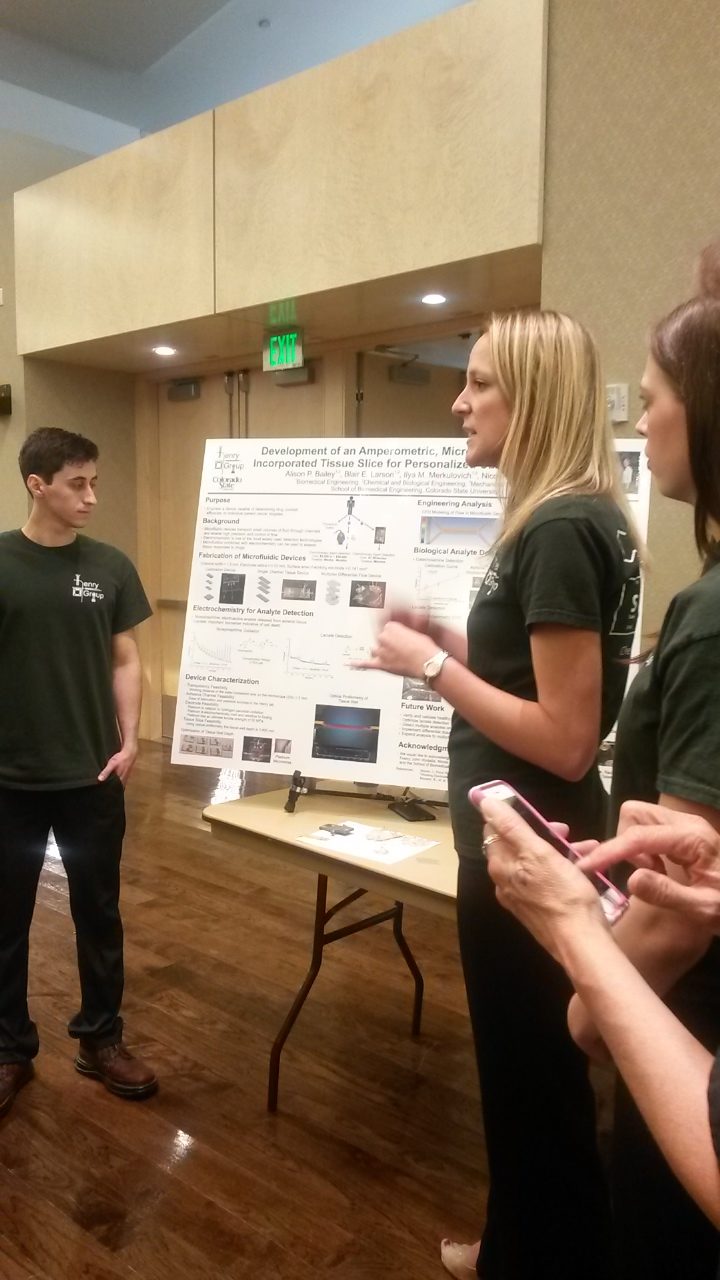Senior design challenges students to think creatively and empowers them to take responsibility for all phases of their project, from design and manufacturing to documentation and marketing. In their fifth year, students are required to complete BIOM 486A–Biomedical Design Practicum: Capstone Design I and BIOM 486B–Biomedical Design Practicum: Capstone Design II. During the Fall and Spring semesters of their fifth year, students work diligently in small, multidisciplinary teams to complete a project.
Your participation will produce a valuable return on investment in the following ways:
Obtain Solutions
Utilize young, vibrant minds to help your organization explore concepts that may be difficult to achieve in-house due to personnel constraints or time.
Identify Potential Hires
By working closely with our senior design teams, you will have recruiting exposure to our graduating engineers.
Build Relationships with Innovators
The School of Biomedical Engineering is proud to boast a high percentage of faculty innovators. Twenty-two percent of inventions disclosed to CSU Ventures, the technology transfer office for the University, are created by SBME faculty. By participating as a corporate sponsor, you will have access to these brilliant minds, which may provide benefits in research and/or consulting in the future.
Increase Visibility
Gain campus exposure; increase your brand recognition and reach students.
Receive Tax Deduction
All corporate senior design investments are tax-deductible if your company chooses to provide funds through a donation. Please check your company’s policies on donations compared to purchase orders in consideration of intellectual property.
Senior design begins in the fall semester (August) and concludes in the spring semester (April) at Engineering Days (E-Days).
Proposed projects will be evaluated for acceptance based on a number of criteria including, but not limited to anticipated learning objectives, resources (internal expertise & supplies), and cost barriers.
Corporate project advisors must review the Project Plan Report (due in mid-October) and give each student on the team a score at the end of each semester.
Projects should have clear goals for design, prototyping, and testing that are achievable within one academic year. These goals can be part of a larger project that would continue with a new team the following year(s).
Current and Past Senior Design Projects
- Paper-Based Microfluidic Device to Detect Salmonella
- Bone Matrix Electrospinning
- Hemocompatibility Flow Chamber
- Sperm Capacitation
- Pulsating Organ Model Surgical Training Tool
- Robotic Force Controlled Testing System for Spine Constructs
- Canine Exoskeleton
- Dermal Regeneration Template
- Training Laparoscope
- Improved Serum Product for Cell Culture
Why are CSU Biomedical Engineering Students Unique?
Colorado State University biomedical engineering majors earn two degrees in a five year period: Bachelor of Science in Biomedical Engineering and one of the following:
* Bachelor of Science in Chemical & Biological Engineering
* Bachelor of Science in Electrical Engineering
* Bachelor of Science in Mechanical Engineering
Small Teams
Students work in interdisciplinary teams of 3-6 individuals on an open-ended BME design project, from problem definition to design to prototype(s) to validation.
Multidisciplinary Design Teams
Biomedical engineering senior design teams consist of students from at least two of BME’s three partner programs: chemical and biological, electrical, or mechanical.
Industry Experience
Over 45% of fifth-year BME students at Colorado State have had engineering industry internship experience. This experience reinforces important skills learned in labs and classrooms: valuable critical thinking skills, strong communication skills, and essential interpersonal skills needed to work effectively with others.
Long Hours
Each student is expected to work 12-15 hours per week for their capstone design class. This time includes preparing reports and presentations about the project and a few smaller assignments.
Weekly Advisor Meetings
Students are strongly encouraged to meet with their project advisor weekly or at least have a phone meeting and meet in person monthly.
